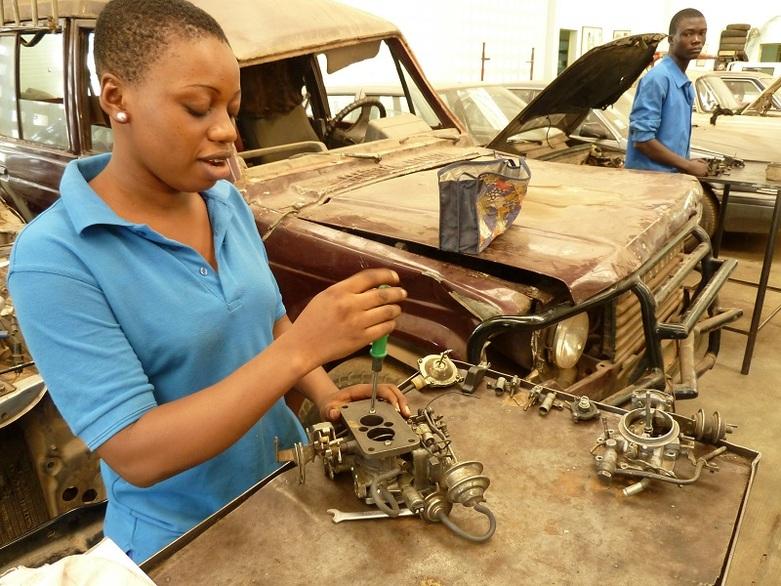Context
Economic development in Togo is slow. There is limited industry and dependent employment. Around two thirds of the population make their living from agriculture. Young people in particular, who make up the majority of the population, are finding it difficult on the labour market.
Togo’s Government aims to restructure the country’s outdated vocational training system and turn it into a modern dual training system to ensure that graduates of the training courses meet the requirements of the private sector and find employment.
Youth employment approaches already exist, but they are not sufficiently coordinated with one another. In view of the great economic, social and political relevance of the topic, the Government of Togo has given it high priority, although this is not yet reflected in the allocation of funding.
Objective
More young men and women have been integrated into the labour market and have adequate employment.
Approach
After key steps were taken in the vocational education and youth employment sector in earlier phases of the project, activities now focus on consolidating these reforms and disseminating the approaches. Since 2019, these have been supplemented by technical short-term qualifications that respond to the market needs, thus creating targeted employment.
Furthermore, the project is adapting and improving training and continuing education. To this end, it is promoting dialogue between the political level, the implementation level and the private sector. New occupations are being identified that are especially attractive for young women and for people with disabilities. These groups are particularly frequently marginalised and hence affected by extreme poverty.
The project is advising the Government of Togo on quality assurance and on coordinating measures aimed at promoting youth employment and vocational training. It is helping to set up a comprehensive steering system.

